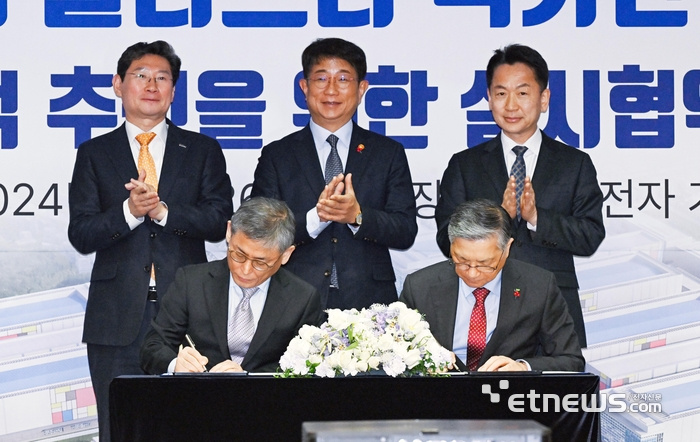South Korea is accelerating its plans to develop the world's largest semiconductor cluster in the city of Yongin, as part of a national strategy to enhance its position in the global semiconductor market. On December 26, 2024, the Ministry of Land, Infrastructure, and Transport officially designated the Yongin Semiconductor National Industrial Complex as a national industrial park. This strategic move is set to fast-track the development of the complex, with the goal of having the first semiconductor fab operational by 2030.
A Game-Changing Investment for Semiconductor Leadership
This massive project is part of a larger, nationwide semiconductor initiative launched earlier in 2024 by the Ministry of Trade, Industry, and Energy. The government plans to invest a total of 622 trillion Korean won ($4.7 trillion) by 2047 to create the world's largest semiconductor industry cluster in the southern part of Seoul, spanning multiple industrial parks across Gyeonggi Province. The complex will cover a vast area of 21 million square meters and is expected to generate 3.46 million new jobs.
The newly designated Yongin Semiconductor National Industrial Complex will play a pivotal role in this plan, marking a major step in South Korea's efforts to strengthen its semiconductor capabilities. The complex will cover 7.28 million square meters and house six large semiconductor fabs, three power plants, and more than 60 supporting companies from the semiconductor supply chain.
Investments and Plans from Samsung and SK hynix
As part of the development plan, Samsung Electronics and SK hynix will lead the construction of the semiconductor facilities in Yongin. Samsung Electronics plans to invest 360 trillion Korean won ($246.4 billion) to build six fabs, while SK hynix is committed to investing 122 trillion Korean won ($92.3 billion) in constructing four semiconductor fabs at the site. In total, Samsung's investment across various facilities, including memory chips and system semiconductors, amounts to 500 trillion Korean won ($3.78 trillion).
Samsung will also invest in additional facilities in Pyeongtaek and Giheung, including three system and chip factories and three memory chip R&D plants. SK hynix, on the other hand, will begin construction of its four new fabs in March 2025, with completion expected by 2027. This extensive investment is expected to increase South Korea's share of the global semiconductor market, particularly in advanced non-memory chips, from 3% to 10% by 2030.

Ensuring Infrastructure and Power Supply
To meet the demands of the growing semiconductor cluster, the government is fast-tracking infrastructure development, including energy and water supply. Initially, three LNG power plants will supply about 3GW of electricity, with plans to build additional power transmission lines to secure up to 7GW of energy by 2030. The overall power supply to the industrial complex is expected to exceed 10GW by 2053.
In terms of water supply, the complex is expected to require around 1.33 million tons of industrial water per day. To address the challenge of limited water resources, the government and private companies will use wastewater recycling and other alternative sources to ensure a stable water supply for the park.

Housing and Transportation Infrastructure
To support the workforce at the Yongin Semiconductor Complex, plans include the construction of 16,000 residential units by 2030. This will provide stable housing for employees working in the industrial park. In response to the increased traffic demand, the government will also undertake an extensive transportation development plan, including the expansion of National Route 45 and a new high-speed road network around the complex.
Strategic Importance for South Korea's Global Competitiveness
South Korea's semiconductor hub is not only an economic development project but also a national security strategy. Kim Yong-kwan, President of Samsung Electronics' DS Business Strategy Division, highlighted that major global powers such as the U.S., China, and the European Union are heavily investing in their own semiconductor industries to ensure technological and economic dominance. He emphasized that the success of the Yongin semiconductor cluster is critical for South Korea's competitiveness on the global stage.
Park Sang-woo, Minister of Land, Infrastructure and Transport, also remarked on the importance of the early designation of the Yongin Semiconductor National Industrial Complex, saying it is a valuable achievement born from close cooperation between relevant agencies. He added, “We will continue to do everything we can to ensure that this complex becomes the core hub of the semiconductor industry and a landmark for South Korea.”
+86 191 9627 2716
+86 181 7379 0595
8:30 a.m. to 5:30 p.m., Monday to Friday
